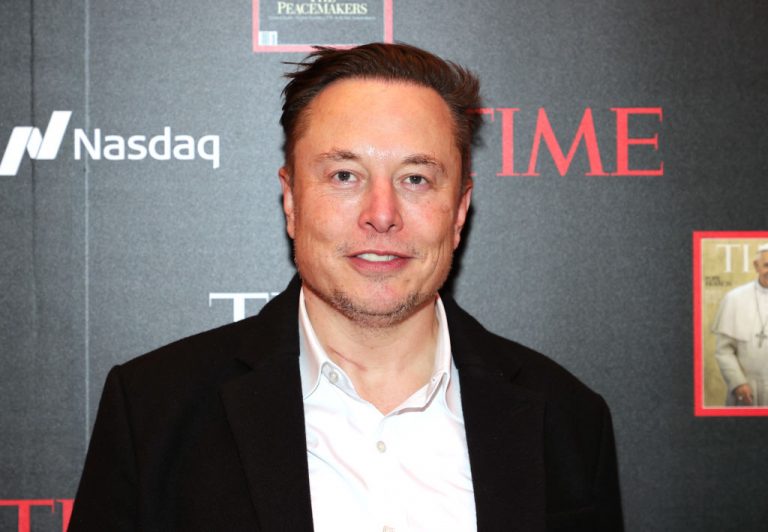Neuralink CEO Elon Musk has high hopes his brain implant chip technology will go live in humans this year, but scientists remain skeptical while his competitors vie for smarter wireless solutions.
According to Musk, Neuralink’s Brain Computer Interface (BCI) engineering will be available for use in humans if the FDA approves of it, Musk said during a Wall Street Journal CEO summit in December of last year.
“We hope to have this in our first humans, which will be people that have severe spinal cord injuries like tetraplegics, quadriplegics, next year, pending FDA [Food and Drug Administration] approval,” Musk told his online audience, The Epoch Times reported.
The application of BCI is when a surgically implanted chip (or “link’ in Musk’s terms) connects to the brain’s neurons and translates brainwave patterns and pulses into digital information by means of a computer.
READ MORE:
- Professor in Denmark Secretly Did Research on Monkey Brains to Help Chinese Soldiers Fight in High-Altitude
- China’s New AI ‘Prosecutor’ Can Charge People for Political Dissent
- How Communist China is Exploiting Artificial Intelligence: Part 1
Success
You are now signed up for our newsletter
Success
Check your email to complete sign up
In theory, artificial intelligence (AI) generated data can be downloaded from the cloud, be fed back into the brain and will, in turn, manifest as thoughts, senses, or memories.
Some fantasize that this process eventually may lead to monkeys beating chess grandmasters in the future or paralyzed people being able to feed themselves with the aid of a bionic arm.
“I think we have a chance with Neuralink to restore full-body functionality to someone who has a spinal cord injury,” Musk added, according to ET.
“Neuralink’s working well in monkeys, and we’re actually doing just a lot of testing and just confirming that it’s very safe and reliable and the Neuralink device can be removed safely.”
And there are telling signs that the company is ready for its first set of trials in humans. Recently the outfit posted an advertisement on a job site announcing they were seeking to employ a clinical trial director at company’s headquarters in Fremont, California.
“As the clinical trial director, you’ll work closely with some of the most innovative doctors and top engineers, as well as working with Neuralink’s first clinical trial participants,” the advertisement read.
“You will lead and help build the team responsible for enabling Neuralink’s clinical research activities and developing the regulatory interactions that come with a fast-paced and ever-evolving environment,” it continued.
Furthermore, the candidate must be “mission-driven,” be “able to meet tight deadlines with accuracy and efficiency,” and possess an “understanding of the clinical trial process from beginning to end.”
Too chaotic
However, not everyone is as thrilled as Musk is about BCI and humankind. A recent and extensive article published in Fortune magazine asserted that Musk’s brainchild is plagued by a huge walkout of personnel, stagnating production processes—and a megalomaniac CEO.
“There was this top-down dissatisfaction with the pace of progress even though we were moving at unprecedented speeds,” an unidentified former employee at Neuralink shared with Fortune, adding, “Still Elon was not satisfied.”
Too ambitious
According to others, Musk has been demonstrably too optimistic and creates false hopes Neuralink will never be able to deliver on. Several analysts referenced in the article think this way. The outlet also quoted neuroscientist James Wu who took to Twitter, stating:
“Neur*link [sic] is pouring funding only into implants that realistically will never be used by the average patient with disabilities in the absence of structural changes to our health care systems.”
Too offensive
Another concern, experts pointed out, is the potential the technology may have malignant consequences. Especially in light of developments such as the Chinese Communist Party’s pursuit of an agenda to fortify its combative powers by creating AI-engineered super soldiers.
Li Peng, for instance, a high-profile expert at a subsidiary of the notorious Chinese Academy of Military Medical Sciences, alerted in an article in 2017 to the adaptability of brain sciences for military purposes.
“The study into brain science was born out of a vision for how the future warfare would evolve,” Peng said. He added that this discipline has “an extremely strong military characteristic” in China, and is believed to be key in safeguarding a “strategic high ground” for every country.
Furthermore, Epoch Times referred to a Chinese military-run newspaper issued in March of 2021 that praised AI development “integrating human and machine” to create super-soldiers as an essential in winning future wars.
Too invasive
Others point at the ethical side of the coin, stating that neuro-brain study is a highly invasive bailiwick by nature and may take over the last haven of privacy: the human mind.
“The brain is the most sacred place—the most important place for privacy and the creation of self,” Nita Farahany, a law professor at Duke University, told Fortune. “Once that becomes accessible to companies and governments and everyone else, that is a concerning if not terrifying thought.”







